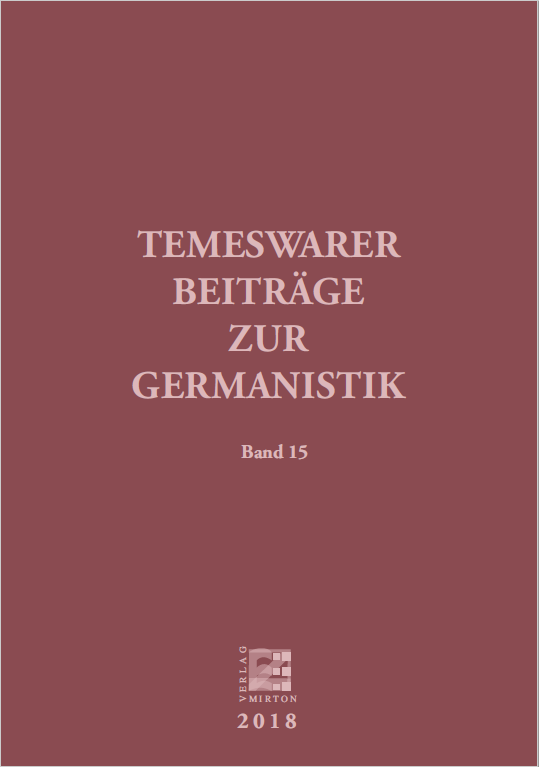Wolfgang Borcherts Kurzgeschichten. Theoretische Grundlagen einer Typologie
Wolfgang Borchert's Short Stories: Theoretical Foundations of a Typology
Author(s): Károly CsúriSubject(s): German Literature, WW II and following years (1940 - 1949), Theory of Literature, Sociology of Literature
Published by: Editura Mirton
Keywords: Wolfgang Borchert; short story; post-war literature; interpretation; typology;
Summary/Abstract: The article outlines the basic structure, its variants and the fine structures of a comprehensive narrative type of Borchert's short fiction. They represent abstractions of previous detailed textual analyses and provide an explanation and basis for comparison for the individual stories. In contrast to inductive interpretation methods, they are placed here as theoretical constructs at the beginning and are interpreted by the stories or their determining aspects as a second step. From this point of view, a common narrative type is represented by those stories that turn out to be a kind of model of the same basic structure or of its different variants. In addition to the variants, the abstract basic structure is also differentiated by a system of partly metaphorical fine structures on the text surface, whose motif networks and intertextual networks as well as often lyrically tight compositions illuminate other subtle peculiarities of Borchert's short fiction beyond the immediate semantic-aesthetic meaning. The multi-layered model of Borchert's narratives is suggested in the paper by short interpretations of some stories such as Billbrook, Die Hundeblume, Von drüben nach drüben, Bleib doch, Giraffe, die Küchenuhr, Der viele viele Schnee and Das Holz für morgen.
Journal: Temeswarer Beiträge zur Germanistik
- Issue Year: 2022
- Issue No: 19
- Page Range: 57-74
- Page Count: 18
- Language: German

